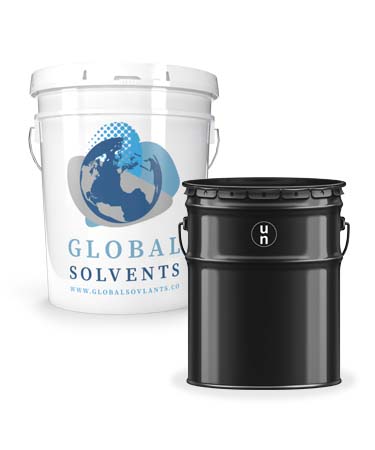
Plastic Pails or Metal Pails? Which Type is Best for You?
Pails have come a long way from their use in the ancient world. Pails, also known as buckets, are vessels with an open top and flat bottom. Originally, they were made from leather and eventually wood to fetch and hold water. Some of the earliest forms of pails were comprised of wooden slats that made a watertight cylinder and metal bands for reinforcement. During the industrial revolution, the wooden bucket was replaced by galvanized steel for quicker mass production. Then, the plastic revolution happened after WWII.
Plastic, the new miracle material of the modern world, offered a new cost-effective way to mass produce seamless pails. The first to do this was Bennett Industries in 1967 and the production of lids followed in 1971. The plastic pail was adopted as the container of choice by the United States Department of Transportation after they conducted a simple test. They filled five-gallon pails with water or sand and then drove them from California to Washington D.C. without incident. The Food and Drug Administration followed with its approval opening up possibilities to store and transport food such as sauces and pickles. Beyond food, plastic pails are used to hold chemicals such as adhesives, paints, coatings, and lubricants.
Here are some plastic pail advantages:
- Plastic pails do not corrode.
- Plastic allows for flexibility.
- They hold a versatile range of products.
- There are multiple standard sizes.
- They have seamless molded construction.
- They have designs that are specifically approved for hazardous materials by meeting UN, DOT, and FDA regulations.
- They are resistant to products that would normally permeate other materials.
It’s easy to think that plastic pails are the end of all industrial packaging choices for products, but metal pails still hold a large part in transporting and storing of goods. Metal pails are still effortless to mass produce and have recycling facilities in place to easily discard them responsibly.
There are multiple advantages to using metal pails:
- Metal pails do not melt in a fire.
- They are great for combustible products.
- Metal is strong. The right metal thickness won’t buckle when stacking heavy products.
- They can withstand an immense amount of pressure.
- They do not leach toxins.
- They do not absorb odors.
When it comes to choosing the right pail, it comes down to several factors. What product is being protected, stored, and transported? Will the product create pressure or gas? Is the product caustic? How will the pails be transported? What environment will the pails be stored in? What rating do the pails need to have to meet legal requirements? All of these questions help you decide what is the safest way to protect, transport, and store your product without compromising the product’s quality.
JohnPac has experts that will guide you in the right direction when choosing your pail.




